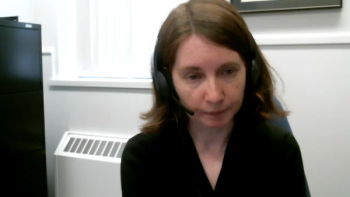
Ruth Ann Marrie, MD, PhD, director of the Multiple Sclerosis Clinic at the University of Manitoba, speaks about the overall prevalence of comorbidities in patients with multiple sclerosis (MS).

Ruth Ann Marrie, MD, PhD, director of the Multiple Sclerosis Clinic at the University of Manitoba, speaks about the overall prevalence of comorbidities in patients with multiple sclerosis (MS).
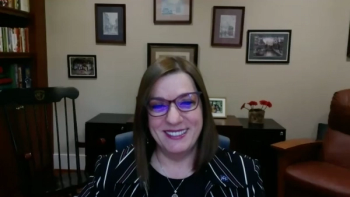
The Quality Cancer Care Alliance is focusing on 2 major topics: value-based care and innovation, and precision oncology is the intersection of those 2 issues, said Sibel Blau, MD.
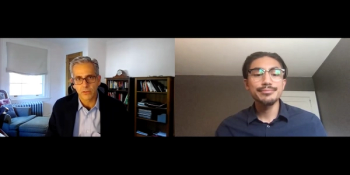
In collaboration with the American Heart Association, Jazz Pharmaceuticals will provide a wide variety of sleep health educational content, including scientific research, reading materials for both patients and practitioners, and podcasts from experts in the field speaking to the importance of sleep on cardiovascular health.

Partnering with pharmacists ensures prescription availability for patients with HIV during the coronavirus disease 2019 (COVID-19), noted Milena Murray, PharmD, MSc, BCIDP, AAHIVP, of Midwestern University College of Pharmacy.
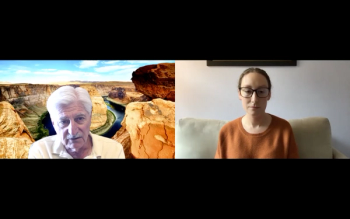
The CGRP story is really based on reverse translation and other observations in humans will be pursued along that same model, said Frank Porreca, PhD, professor of pharmacology and anesthesiology at the University of Arizona and a member of the Department of Collaborative Research at Mayo Clinic in Arizona.
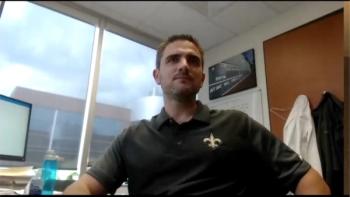
Immune-associated neurotoxicity in patients following chimeric antigen receptor (CAR) T-cell therapy may be due to monocyte-like cells in infusion products, explained Michael R. Green, PhD, University of Texas MD Anderson Cancer Center.

There is a lot of uncertainty among providers participating in federal alternative payment models (APMs) given the general election and the upcoming Supreme Court case on the Affordable Care Act (ACA).

Despite FDA accelerated approval in April, we still need to learn more about resistance to this antibody drug conjugate, said Aditya Bardia, MBBS, MPH, breast medical oncologist, Massachusetts General Hospital, Harvard Medical School.
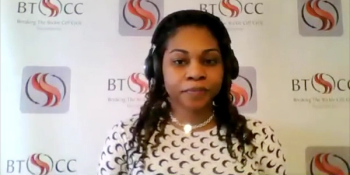
Lametra Scott, PharmD, CCHP, CEO of Breaking The Sickle Cell Cycle Foundation Inc, discussed the pathophysiology of sickle cell disease (SCD) the dangers of leaving it untreated.

The federal illegality and Schedule I listing of cannabis significantly impair our ability to conduct any kind of prospective clinical research, said Joshua L Rein, DO, FASN, a nephrologist at Mt. Sinai Hospital in New York City.

Despite the price, adherence to biologics for asthma is usually good because of the effectiveness, said J. Allen Meadows, MD, president of the American College of Allergy, Asthma & Immunology.
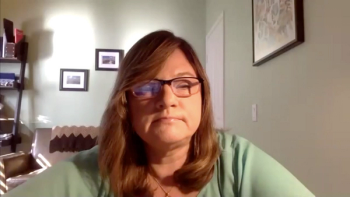
Jill Jarecki, PhD, chief scientific officer at Cure SMA explained the current data and potential for gender to impact the severity spinal muscular atrophy (SMA).

The patients must always come first, emphasized Milena Murray, PharmD, MSc, BCIDP, AAHIVP, associate professor at Midwestern University College of Pharmacy, who practices at the Northwestern Medicine Infectious Disease Center in Chicago.

Spend time with your patients, discussing both the risks and benefits of a potential coronavirus disease 2019 vaccine, emphasized Maura Abbott, PhD, AOCNP, CPNP, RN, assistant professor of nursing at the Columbia University School of Nursing.

Quality of life for patients with multiple sclerosis (MS) could be better when they are off medication because they will not have adverse effects related to those medications, said John Corboy, MD, professor of neurology, University of Colorado Denver, School of Medicine.
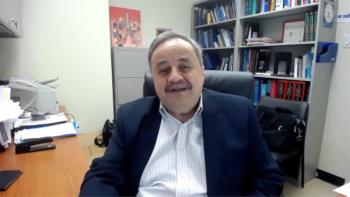
Major issues still surround COPD treatment, noted Nicola Hanania, MD, MS, pulmonary critical care physician and director, Airway Clinical Research Center, Baylor College of Medicine, Houston, Texas.
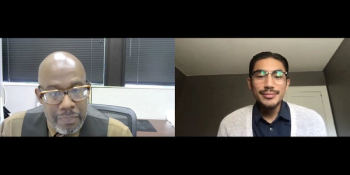
Michael S. Fitts, assistant dean for user access and diversity for The University of Alabama at Birmingham, discusses reporting on the progressive symptoms of Parkinson disease, and the impact of nonmotor symptoms of anxiety and depression.
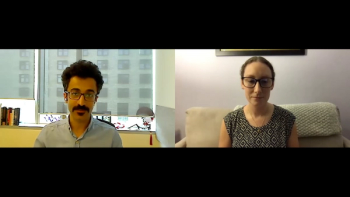
There can be a myriad of reasons for the patterns observed in our study on alteration of migraine frequency and triggers during the pandemic, said Faraidoon Haghdoost, MD, a general practitioner and PhD student at The George Institute for Global Health in Sydney, Australia.

Much of the population experiences disordered breathing at night, explained Krishna M. Sundar, MD, clinical professor, Pulmonary Division, Department of Medicine, and medical director, Sleep-Wake Center, University of Utah.

Initial preliminary efficacy and safety data are expected sometime next year, stated Aditya Bardia, MBBS, MPH, breast medical oncologist, Massachusetts General Hospital, Harvard Medical School.

Early treatment of infants with spinal muscular atrophy (SMA) can drastically improve motor function for patients, explained Jill Jarecki, PhD, chief scientific officer at Cure SMA.
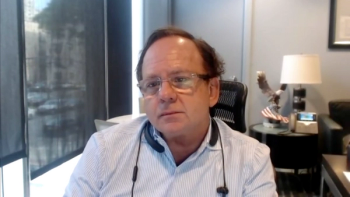
Andre Goy, MD, chairman, director, and chief of the Division of Lymphoma at John Theurer Cancer Center in Hackensack, NJ, discussed the potential benefits of using CAR T-cell therapies as a second-line treatment.
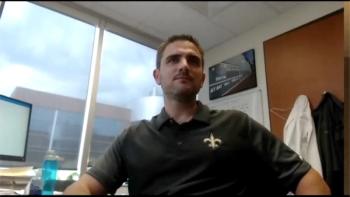
Chimeric antigen receptor (CAR) T-cell therapy does not always lead to a durable response, and we are trying to figure out why, noted Michael R. Green, PhD, University of Texas MD Anderson Cancer Center.

It is still unclear why patients who should respond to anti–interleukin-5 therapies do not, noted Anne Reihman, MD, Division of Pulmonary Sciences and Critical Care Medicine, University of Colorado.

Artificial intelligence allows underserved populations to gain access to a radiologist, pointed out Anthony L. Loschner, MD, assistant professor and associate program director, Critical Care Fellowship Program, Virginia Tech Carilion School of Medicine.

There are clear differences between the biologics approved to treat asthma, and finding the right one for a patient requires shared decision-making conversations, said J. Allen Meadows, MD.
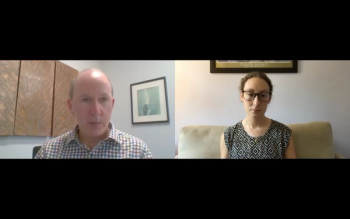
Increased time spent in front of computer screens, less time spent sleeping, and less access to gyms have led my patients to have a lot more migraines, said Peter McAllister, MD, a neurologist, board certified headache specialist, and medical director of the New England Institute for Neurology and Headache.

Shared decision-making is very important when it comes to choosing biologics for patients, emphasized Nicola Hanania, MD, MS, pulmonary critical care physician and director, Airways Clinical Research Center, Baylor College of Medicine, Houston, Texas.

Challenges remain, in light of new guidelines, when making treatment decisions for patients with severe asthma, noted Megan Althoff, MD, PhD, second year fellow, University of Colorado, Division of Pulmonary Sciences and Critical Care Medicine.

Updated asthma guidelines touch on some challenging areas in disease management and treatment, noted Dan Ouellette, MD, MS, FCCP, of Henry Ford Hospital and Wayne State University School of Medicine.

259 Prospect Plains Rd, Bldg H
Cranbury, NJ 08512
© 2025 MJH Life Sciences®
All rights reserved.
